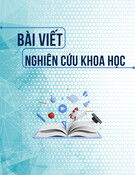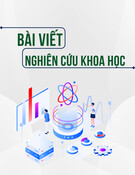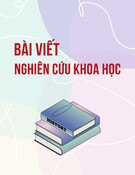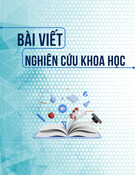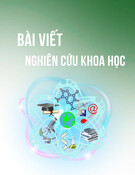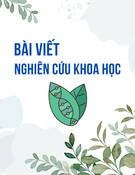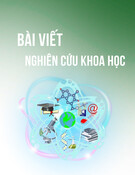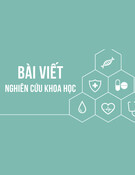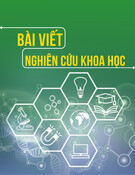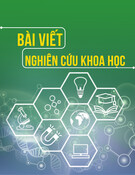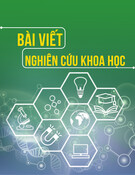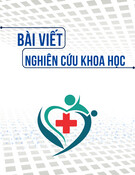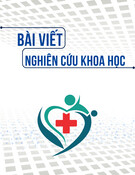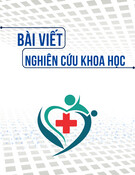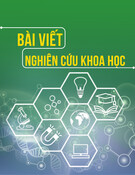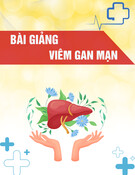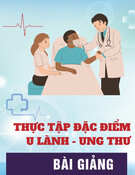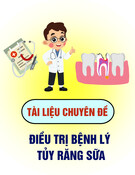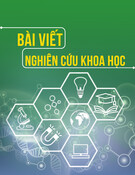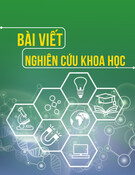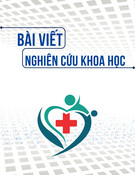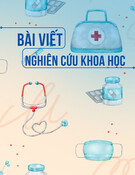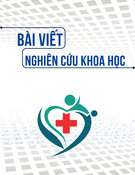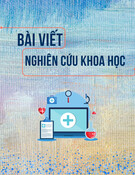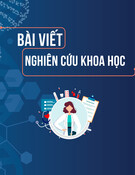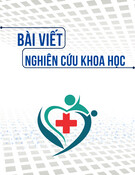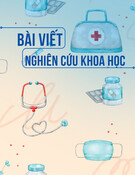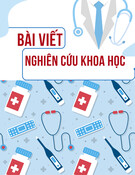
13
Journal of Medicine and Pharmacy, Volume 13, No.04, June-2023
Corresponding author: Ho Thi Thuy Trang, email: htttrang@huemed-univ.edu.vn
Recieved: 15/3/2023; Accepted: 12/5/2023; Published: 10/6/2023
DOI: 10.34071/jmp.2023.4.2
Current status of scientific research of nursing students at Hue University
of Medicine and Pharmacy
Nguyen Hoang Long1, Tran Thi Thao1, Hoang Thi Phuong Thao1, Pham Thi Khanh Linh1,
Ton Nu Minh Duc2, Nguyen Thi Anh Phuong2, Ho Thi Thuy Trang2*
(1) Nursing student, Hue University of Medicine and Pharmacy, Hue University
(2) Faculty of Nursing, Hue University of Medicine and Pharmacy, Hue University
Abstract
Background: Experiences of performing scientific research are significantly to enhance nursing evidence-
based practice. This study aimed to describe the current status of scientific research of nursing students,
and identify attitudes of nursing students toward scientific research at Hue University of Medicine and
Pharmacy, Hue University. Materials and methods: Retrospective study and a cross-sectional study design
were used. A sample of 47 Bachelor’s thesis in nursing and 516 nursing students at University of Medicine
and Pharmacy, Hue University was involved. Data were collected using a questionnaire, which including: (1)
General characteristics, (2) “Critical appraisal checklist for cross-sectional study toolkit”, and (3) “The Nursing
students’ attitudes towards and awareness of research and development within nursing scale”. Multivariable
regression analyses were used to find the associated factors of attitude toward scientific research. Results:
Most of undergraduate theses ensure quality assurance in research. Overall, attitude of scientific research
among nursing students is moderate. Year of study, ranked academic, read scientific research regularly, and
plan to participate in scientific research were significantly associated with attitudes toward scientific research.
Conclusion: There is a need to motivate nursing students to participate in scientific activities through provide
research and offer opportunities for them to do scientific research.
Key words: scientific research, attitude, awareness, nursing students.
1. BACKGROUND
Scientific research is regarded as one of the
most crucial activities of students at universities
of education. Scientific research is necessary
within practice to promote evidence-based
practice, patient safety and quality of care [1,2].
Having strong scientific research experience
among nursing students enhance responding to
expectations worldwide for rapid and continuous
improvements [3].
Scientific research help students to developing
critical thinking, teamwork skills, and problem solving
[1,4]. Nursing students were able to appreciate
crucial research for practice, the importance of
conducting research to ensure optimal patient
outcomes, and the value of research for knowledge
advancement in the nursing profession [5]. However,
students had rarely experience in scientific activities
[3,4], thus enhancing educational strategies would
support them to integrating evidence based practice
in clinical practice as well increasing research
methodology [4]. The aim of this study was to:
- To describe the current status of scientific
research of nursing students from 2017 to 2021.
- To identify students’ attitudes of nursing
students toward scientific research at Hue University
of Medicine and Pharmacy, Hue University; and
related factors.
2. MATERIALS AND METHODS
Study design: Retrospective study and a cross-
sectional design was used in this research from
January 2022 to September 2022.
Participants: In retrospective study design, 47
nursing undergraduate theses were selected from
2017-2021. In a cross-sectional study design, nursing
students from freshmen to final year students at
the University of Medicine and Pharmacy, Hue
University, who agreed to participate in the research
were recruited. The sample size was calculated using
WHO Sample size software [6] with 1-α = 95, d =
0.05, ε = 1, μ = 0.05, σ = 0.55, and adding 10% drop-
out rate. In total, 516 nursing students participated
in this research.
Data Collection Tools: the pre-designed
instruments include general characteristics,
critical appraisal tool [7] and the Nursing students’
attitudes towards and awareness of research and





